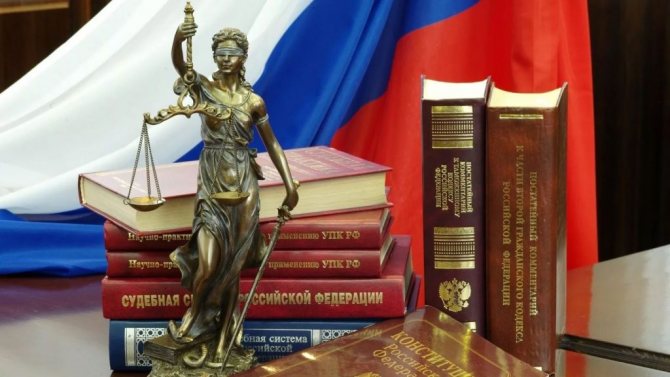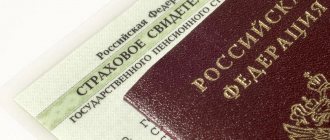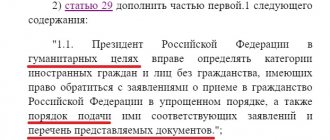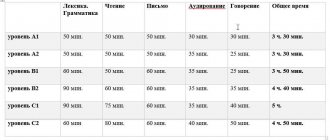Signs and their content in the Russian Federation
Citizenship has the following characteristics:
- Citizens living on the territory of the republics - subjects of the Russian Federation - are both citizens of Russia and citizens of the republics.
- Citizens of the Russian Federation can have citizenship and nationality of other states at the same time. Accordingly, if a person is a bipatriate, that is, a citizen of two states, then his rights and freedoms cannot be limited for this reason (read more about dual citizenship in the Russian Federation here).
- It is impossible to refuse a Russian passport before fulfilling civil duties, including for men - duty for compulsory military service.
- A person cannot be denied citizenship on the basis of race, nationality, religion or other factors that may be considered discriminatory.
The concept and principles of citizenship of the Russian Federation
The legal connection of a permanent nature between an individual and the state is called citizenship. The connection is expressed in the totality of mutual duties and rights.
The basic principles are as follows:
- citizenship is valid throughout Russia;
- it has equal rights, regardless of whether it is acquired by birth or received by application;
- citizenship is permanent and is retained by citizens even if they live abroad for a long time;
- the state does not have the right to deprive a person of citizenship unilaterally;
- a citizen of the Russian Federation can count on support, protection, patronage from the state;
- a citizen of the Russian Federation cannot be extradited at the request of another state;
- if there is dual citizenship, the person retains his rights and is considered by the state exclusively as a Russian citizen;
- Citizens of the Russian Federation have the right to change their citizenship at their own request.
A citizen of the Russian Federation cannot be deprived of citizenship, but can write an application to renounce it. In this case, it is necessary to provide reasons and confirmation that another state is ready to grant him citizenship. The principles of citizenship, adopted laws and regulations cannot contain provisions that are restrictive based on national, religious, social or racial affiliation.
The Russian Federation encourages the adoption of citizenship by migrants and stateless persons. In reverse, the state has every right to demand compliance with the laws of the country.
What is the essence of the basic principles?
The Federal Law “On Citizenship of the Russian Federation” enshrines the following principles:
- Firstly, citizenship in Russia is equal and uniform, regardless of the basis for acquisition. Thus, a child of two citizens of the Russian Federation and an emigrant from another country who has received a Russian passport are equal in their legal status, that is, they have the same rights and obligations.
- Secondly, living outside the country does not entail the termination of citizenship. Even moving to a permanent place of residence in another country without giving up a Russian passport does not exclude the rights and obligations of a person in relation to the state.
- Thirdly, not a single citizen of the Russian Federation can be deprived of citizenship or the right to change it even for committing a crime, regardless of its severity. However, it is possible to renounce citizenship in cases provided for by law.
- Fourthly, a Russian citizen cannot be expelled from the country or extradited to another state, even if he has committed a crime that entails liability under foreign law.
- Fifthly, Russia encourages the acquisition of Russian citizenship by stateless persons living in the territory of this country. Moreover, for a general and simplified procedure for obtaining a Russian passport, you must live in the country for a period of time specified by law.
Principles of citizenship in criminal law of the Russian Federation

Citizens of Russia are obliged to comply with the laws, regardless of their place of residence. When committing criminal acts on the territory of another state, even if he was not convicted abroad, returning to the Russian Federation, a citizen may be convicted under the laws of the country’s criminal code. In this case, the laws and maximum penalties for the crime in the country in which it was committed may be taken into account.
In this case, the actions of the state are guided by the following principles:
- patronage - used when considering criminal cases of a limited contingent, for example, military personnel who are abroad. So, if a crime is committed on the territory of a unit, it is subject to the jurisdiction of the Russian Federation, outside its borders - liability under the laws of the host country;
- universality - for the type of crimes that threaten the security of humanity (terrorism, hostage-taking, etc.). According to international treaties, a Russian citizen can be convicted by any state;
- reality - protecting the interests of migrants who have acquired citizenship from persons of another state who pose a potential danger, are under investigation, are wanted, etc.;
- occupational - when conducting military operations in occupied territories against persons who have committed a crime, the laws of the country that is the occupier apply.
The Russian Federation protects the rights of its citizens, so no matter what crime a person commits, he cannot be deprived of the country’s citizenship.
Grounds for acquisition and termination
The grounds for acquiring citizenship of the Russian Federation are:
- By birth - filiation.
- If both parents are citizens of the Russian Federation, then the child, regardless of place of birth, acquires Russian citizenship - the so-called principle of blood.
There is also the principle of soil, according to which a child born in the marriage of a Russian citizen and a citizen of another state (or a stateless person - a stateless person) acquires Russian citizenship if born on the territory of Russia or on the territory of another country, if in this case he can become stateless .
- A child found on the territory of Russia whose parents have not been identified within 6 months from the date of birth is declared a citizen of Russia.
- Acceptance of citizenship - naturalization.
Resolving this issue is the prerogative of the President of the Russian Federation, but there are a number of conditions that must be met in order to petition the President.- According to the general procedure for naturalization, an adult, capable person who has resided continuously on the territory of the Russian Federation for 5 years, who also has a legal source of livelihood, complies with the Constitution and speaks Russian, has the right to write an application for citizenship.
IMPORTANT: According to the law, continuous residence is considered to be the presence on the territory of the country of a person who does not go abroad for more than 3 months in one calendar year.However, this period can be reduced to one year for those seeking political asylum, refugees and people who have made high achievements in science or culture.
- According to the simplified procedure, the spouse of a Russian citizen can apply if their marriage lasts more than three years, disabled parents and minor children of a Russian citizen if there is no one to care for them, as well as persons who received professional education in Russia, and teachers engaged in teaching activities in Russia are not less than three years.
A simplified procedure is also available to individual entrepreneurs who have paid at least 1 million taxes to the Russian treasury in one calendar year, as well as to workers in a profession in demand in a given country who have been working in Russia for three years.
More information about the nuances of acquiring and terminating citizenship for children can be obtained from this article.
There is a possibility of restoration of citizenship for persons who previously renounced it. Another situation is known when, in the event of a change in the borders of two states, people living in a given territory were asked to choose the citizenship of one of the two countries. This situation is called an option.
Citizenship is terminated by renunciation, permission for which is given by the President.
More information about the grounds and procedure for acquiring and terminating Russian citizenship can be found in this material.
The principle of the right to protection in another country: the authorities must take care of Russians and abroad
Article 61 of the Constitution of the Russian Federation states that Russian authorities are obliged to provide protection to their citizens in other states . This same article, as well as Article 4 of the Law “On Citizenship,” states that a Russian cannot be expelled from the Russian Federation or extradited to another state.
Now, when many Russians regularly go on tourist trips, business trips abroad, and move for permanent residence in other countries, such principles of Russian citizenship are very relevant. Citizens of Russia who are abroad retain all rights. Representatives of the Russian government and consular institutions must protect their citizens outside their home state from discrimination, harassment, violation of rights and other injustices.
On the principle of unity and inseparability
According to Article 6 of the Constitution, Russian citizenship is single and indivisible. The unity and indivisibility of the indigenous people performs the most important function: it guards the preservation of Russian statehood and is one of the foundations of the constitutional system. Unity of citizenship lies in belonging to a specific people, and not to a separate nation or nationality, excluding dual citizenship within the country. Let's look at this in more detail.
Showing Unity
To understand how the unified nature of Russian citizenship is manifested, it is necessary to refer to Articles 1 and 5 of the Russian Constitution. These articles define the federal structure of Russia, which includes subjects of the Federation, including 22 republics, 9 territories, 46 regions, 4 autonomous districts, 3 federal cities and 1 autonomous region. Previously existing legislation gave them the right to have their own citizenship (for example, according to Article 21 of the Constitution of Tatarstan, this republic also has its own citizenship). However, this was their right, not an obligation, which is why not all subjects used it. Our analysis of regional constitutions showed that only the Republic of Tatarstan introduced its own citizenship.
In the context of the previously existing Law “On Citizenship of the RSFSR” dated November 28, 1991 No. 1948-1 (repealed by the current law), the constitutional principle of single citizenship suggests that even if there is a regional indigenous, it acts only within the framework of national status (a citizen of Tatarstan is at the same time and a citizen of Russia). However, the constitutions of a number of other subjects, for example, the Republic of Altai and the Republic of Buryatia, are in conflict with this interpretation, prohibiting regional citizenship as such, which is contrary to the Constitution of the Russian Federation.
In any case, the previously existing law has been repealed, therefore the unity of citizenship in the interpretation of modern Russian legislation is based on the world practice of federalism, which excludes the possibility of the existence of some kind of “internal indigenous”. However, the current legislation does not exclude the republican passport, therefore the Constitution of the Republic of Tatarstan continues to contain the rule on one’s own citizenship.
By the way, single citizenship is typical for all federal states. At the same time, both the internal and external sides have a single character: let us recall that even if you have a foreign passport, a person who has a Russian passport is considered exclusively as a citizen of Russia.
Reducing statelessness (attracting stateless people)
The essence of this principle: the Russian Federation encourages the acquisition of citizenship by stateless persons who permanently reside within the country (clause 6 of article 4 of Law No. 62-FZ). This rule is in effect in pursuance of the UN Convention on the Reduction of Statelessness, adopted on August 30, 1961, to which Russia is a party. By the way, this document is the basis for many other rules contained in Russian legislation on citizenship. We are talking about the impossibility of depriving a passport if a person becomes stateless, about providing Russian indigenous status to everyone who is born on the territory of the Russian Federation, including from stateless people, etc.











